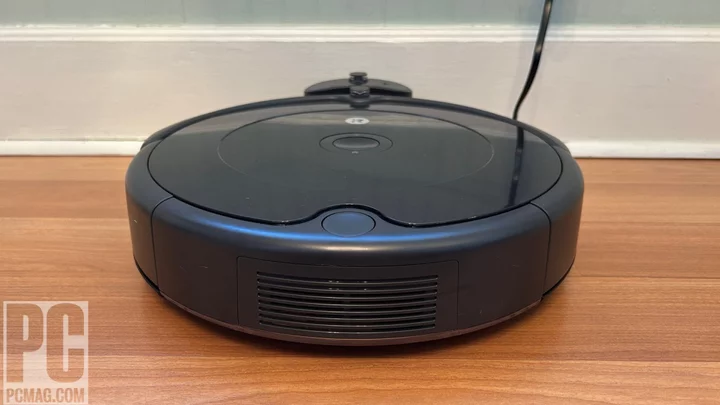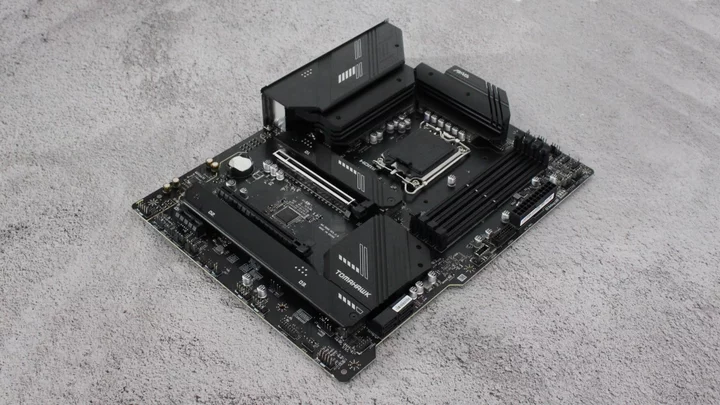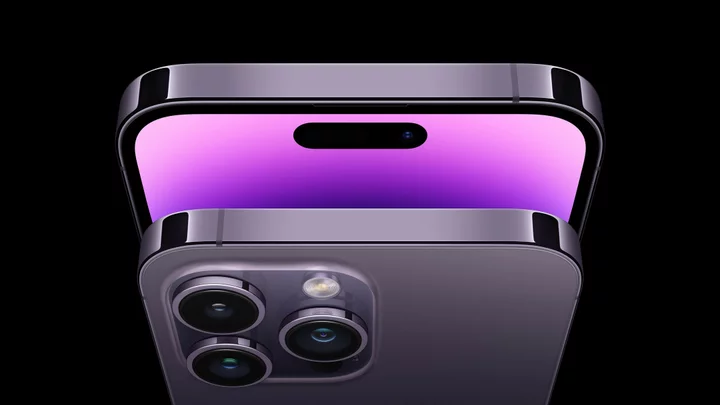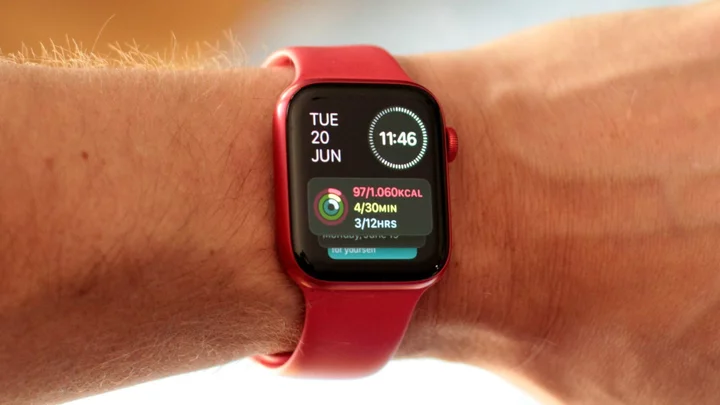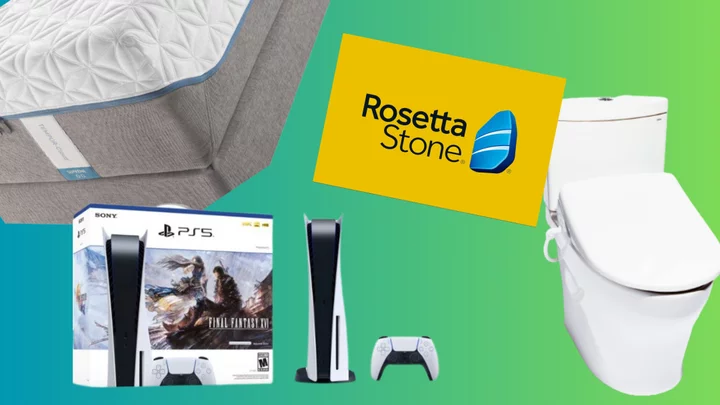If you're in search of a basic robot vacuum that can rid your floors of dust bunnies without breaking the bank, consider the iRobot Roomba 694. Listed at $274.99 (but marked down to $179.99 at the time of this writing), the base model in iRobot's current Roomba lineup offers few frills apart from an app and voice control support, but delivers solid cleaning performance for its low price. It rarely gets stuck, and it has slightly better battery life than its excellent predecessor, the Roomba 675, but otherwise functions about the same. If you can increase your budget, we highly recommend a lower-maintenance self-emptying model like the $599 Shark IQ Robot XL, but the Roomba 694 is a terrific option for first-time robot vacuum buyers, and our Editors’ Choice for entry-level models.
Roomba 694 vs. Roomba i3+ EVO vs. Roomba j7 Series
The Roomba 694 replaced the Roomba 675 as iRobot's entry-level robot vacuum, but it doesn't differ much from its predecessor (which is still available via third-party retailers at the time of this writing). An iRobot spokesperson tells me that 600 series models are all basically the same core robot, with slight differences in terms of design and included accessories.
Measuring 13.4 inches in diameter and 3.5 inches tall, the Roomba 694 is wider but shorter than the Roomba 675, making it a slightly better option for cleaning under furniture. If you’re looking for a lower-profile robot vacuum in this price range, check out the 2.9-inch Eufy RoboVac 30C ($299).
The Roomba 694 weighs 6.8 pounds, a whole pound less than its predecessor, but it now lacks a carrying handle on the top. The handle is useful when you have to manually put the robot on its base; it's a shame iRobot removed this design detail, but that's a small gripe.
An AeroVac filter in the dustbin helps capture fine dust and debris to prevent it from recirculating into the air. The Roomba 694 comes with a replacement AeroVac filter in the box, an accessory you don't get with the Roomba 675. iRobot recommends changing this filter every two to three months; a pack of three AeroVac replacement filters costs $24.99.
Besides its design and the extra AeroVac replacement filter, the Roomba 694 retains all the features of its predecessor. On top, it has Spot, Clean, and Home buttons for manual control.
On the bottom, the Roomba 694 has three brushes—a rubber roller, a bristled roller, and a spinning edge sweeper—along with several cliff sensors to avoid falling down the stairs. More expensive Roomba models, including the midrange i3+ EVO, feature two rubber brushrolls that more effectively prevent hair wrap.
In terms of power, the Roomba 600 series offers the weakest suction of iRobot's lineup, or one-tenth the pickup of the i3+ EVO and the high-end j7+ series, iRobot says. Like many other affordable robot vacuums, the Roomba 600 series navigates in a bumper car-like fashion, ping-ponging from wall to wall, whereas the i3+ EVO and the j7+ series clean in orderly rows.
The Roomba 694 comes with one filter preinsalled in the dustbin, and an extra in the boxIn the sub-$300 robot vacuum segment, you can't expect every bell and whistle, but the Roomba 694 offers a few, including Dirt Detect, a feature that allows it to sense and spend more time cleaning heavily soiled areas. It supports app control via the iRobot Home app (available for Android and iOS), and voice control via Amazon Alexa and Google Assistant (via a supported device, sold separately). Apple HomeKit is not included. This model also supports scheduling and keeps a history record of its cleaning jobs.
The Roomba 694 lacks several cleaning capabilities and smart features available in iRobot's more expensive models. The i3+ EVO, for instance, supports self-emptying and home mapping for targeted room cleaning, while the j7+ series adds advanced obstacle avoidance technology, a pet waste-evasion guarantee, and mopping abilities on the Combo model.
A Breeze to Set Up
The Roomba 694 does not come with a separate remote, so you must control it via the buttons on the robot, through the app, or by voice.
In the Roomba 694 box, you get the robot, its charging station, a Getting Started guide, and one extra AeroVac filter. The robot is simple to set up, and I had no trouble connecting it with its companion app and supported virtual assistants.
From its companion app, you can start, stop, and pause the Roomba 694, and in testing it always responded to these controls without delay. After pairing it with Amazon and Google's virtual assistants, I was able to control the Roomba 694 with voice commands such as "Alexa, start Roomba" and "Hey Google, turn on my Roomba."
iRobot recommends setting up the charging station near an outlet, in an area with good Wi-Fi coverage, at least 1.5 feet away from objects on either side, 4 feet away from stairs, and 4 feet away from anything in front. If you have any extra cord, don't leave it loose, or the robot could get stuck on it. You can't wrap the extra cord length into the back of the charging station, as many other robot vacuums allow, so I just tidied it with the included twist tie.
To set it up, wake the robot by turning it over and removing the battery pull tab, then manually place it on the charger, making sure to line up the metal contacts on the bottom of the robot with the ones on the base. When you correctly situate the robot for charging, a green light on the base illuminates. iRobot recommends letting it charge for at least three hours before its first run.
From there, download the iRobot Home app and create an account if you don't already have one. When you first sign into the app, it asks for permission to find and connect to devices on your local network; press Allow. With some Roomba models, you can scan a QR code to pair the robot with the app, but that method isn't available for the lower-end Roomba 694. Instead, tap Select Product > Vacuum Robot > Roomba 600, then follow the instructions in the app to complete the Wi-Fi setup process. When prompted, you'll need to enter your home Wi-Fi password in the app, then press and hold the Spot and Home buttons on the robot simultaneously to connect it.
Controlling the Roomba 694 via the iRobot Home appAfter connecting the robot to Wi-Fi, you can optionally pair it with Amazon Alexa and/or Google Assistant for voice control by linking your iRobot Home account with your virtual assistant's companion app. In the Alexa app, navigate to Devices, select the plus sign in the upper right corner, then tap Add Device > Vacuum Cleaner > iRobot, and follow the on-screen instructions. I already had the iRobot Home skill linked with the Alexa app on my phone from testing other Roomba models, so when I connected the 694 to Wi-Fi, it automatically paired with Amazon's virtual assistant.
To pair it with Google's virtual assistant, open the Google Home app, navigate to Devices > Add > Works With Google > iRobot Smart Home, then sign into your account. If you previously linked a Roomba with Google Home, tap Check for New Devices, and follow the on-screen instructions.
Solid Battery Life and Cleaning Performance
Powered by a rechargeable lithium ion battery, the Roomba 694 cleaned for up to 120 minutes on a charge in our tests, exceeding Roomba’s 90-minute estimate. We find it offers slightly better battery life than the Roomba 675, too, which ran for up to 104 minutes in our tests.
The Roomba 694 typically takes about 100 minutes to finish vacuuming my roughly 1,000-square-foot home. Note that unlike the Roomba i3+ EVO and other robot vacuums, it does not have a recharge-and-resume feature that allows it to pick up where it left off if it runs out of battery power before completing a job. This omission makes it a less-than-optimal choice for large homes.
In Spot mode, the robot spirals approximately three feet in diameter, then reverses the spiral, to clean a specific area. There's no option to enable Spot mode via the app, so you must use the button on the robot to do so.
The robot's bin was almost full after just one cleaning runThe Roomba 694 has no trouble traversing different flooring types including carpet, tile, and laminate, and it easily passes over the transition strips separating them. After a single cleaning run in my home, its dustbin was nearly full with dust, debris, and dog hair, and my floors looked noticeably cleaner, though some remnants remained on the carpet. If you have a lot of carpeting at home, you may want to consider a model with more powerful suction, such as the Roomba i3+ EVO. As with all non-self-emptying robot vacuums, you should be prepared to manually empty the bin at least every couple of cleaning runs.
For a robot with no advanced navigation or obstacle-avoidance technology, the Roomba 694 maneuvers and stays out of trouble quite well. In several test runs, the Roomba 694 never got stuck once. Other robot vacuums in this price range tend to get stuck a lot more often on things like phone cords and low furniture. It typically re-docks itself when it's done cleaning, but one time, it ran out of battery before making it back to its base and halted in the middle of my living room.
After about a half-dozen cleaning runs, the robot's bristled roller had some lint stuck to it, and some hair wrapped around it. For optimal cleaning performance, make sure to regularly check the brushes and remove any hair wrapped around them.
If you're sensitive to noise or work from home, be aware that the Roomba 694 is fairly loud. When vacuuming hard flooring, it operates at close to 70dB, according to readings I took from the NIOSH Sound Level Meter app. The CDC says that's equivalent to a washing machine or dishwasher, and the threshold at which "you may feel annoyed by the noise." In comparison, the Shark IQ Robot XL put out less noise, at 57dB in my testing.
If you're bothered by its operating volume, you can always schedule it to run when you're away from home. From its companion app, you can easily program it to run at a specific time each day, or when you leave home. The app can detect when you leave home based on the location of your phone, or you can link it with a supported third-party device (August, Ecobee, Leviton, or MyQ) to enable this feature. In testing, the robot reliably started cleaning at my scheduled time.
The app also keeps a record of the robot's cleaning jobs. For each History record, it shows the time it started, how it received the command (via the app, a schedule, Google Assistant, etc.), its duration, status (completed, bin full, low battery), and dirt event count.
Basic But Reliable
In the ever-evolving robotic floor cleaner market, the basic Roomba 600 series continues to be a strong choice for first-time buyers. The $274.99 Roomba 694 cleaned for up to 120 minutes on a charge in our tests, outpacing its predecessor’s battery life, and picked up a surprising amount of dust and dog hair while managing to generally avoid common pitfalls that halt other budget robot vacuums. The affordable Eufy RoboVac 30C, which also supports app and voice control, is quieter and more compact, but the Roomba 694’s ability to zip around a room without getting stuck makes it a better buy in our eyes, and our Editors' Choice pick for affordable robot vacuums.

